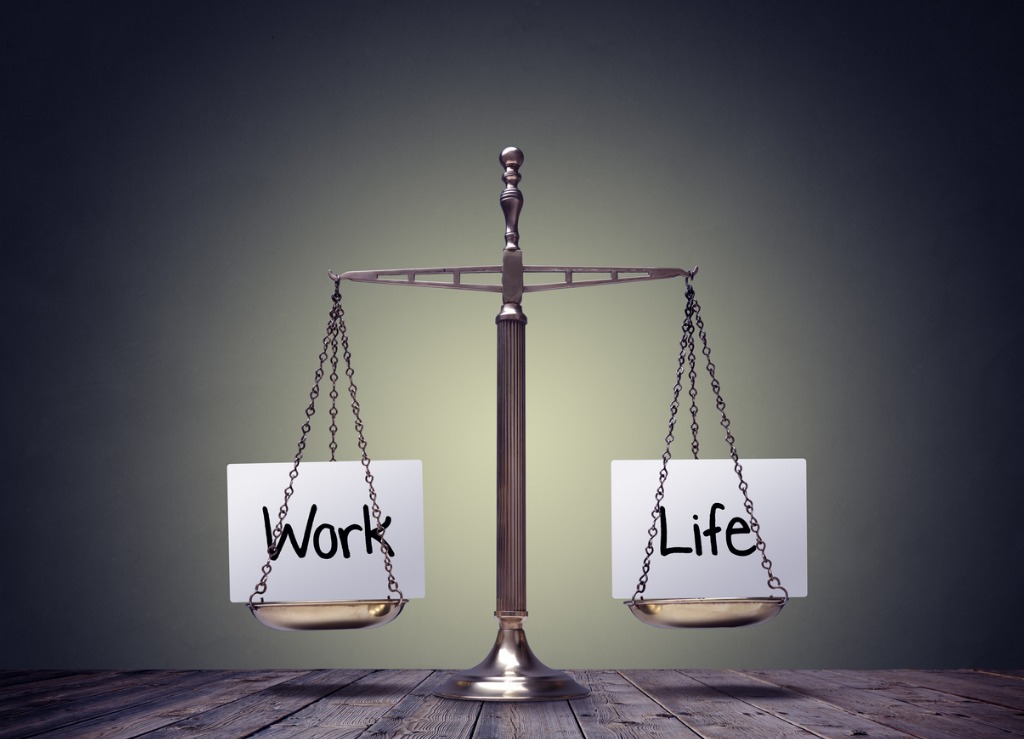The term work-life balance describes a state in which professional demands and private life are in a harmonious relationship. The division between work commitments, private matters, and recreational activities is in balance. The idea of a good work-life balance has gained enormous importance in recent decades, as employees, employers, and healthcare professionals have become increasingly aware of the mental and physical wellbeing benefits of finding the right balance.
Overview
What is behind the concept of work-life balance?
What is the origin of the concept of work-life balance?
How can companies ensure a good work-life balance?
How does a lack of work-life balance affect the employee and employer?
What is behind the concept of work-life balance?
In order to be successful at work, there is often a willingness to increasingly cut back on private matters to focus on a career. The concept of work-life balance is therefore primarily known as a protective measure for employees, but it also generates numerous advantages for employers. The idea is that satisfied and balanced employees are more productive and creative in the long term. If work commitments are specifically limited to the contracted working hours, the subsequent daytime offers sufficient opportunities to concentrate exclusively on private matters, to pursue hobbies, and to schedule rest periods. In essence, the concept is thus based on adequate separation of professional and private phases. Individual factors for maintaining a work-life balance are fixed in labour laws (e.g. break regulations, holiday entitlement, etc.).
What is the origin of the concept of work-life balance?
The origin of the concept goes back to the 19th century to the time of industrialisation when new technologies led to an increasing separation between work and home environments. In the 1980s, work-life balance gained greater relevance as the USA developed psychological findings on the effects of occupational stress on the human organism. While work-life balance today takes all protagonists into account, in the early years the concept focused on enabling women to incorporate family and career.
How can companies ensure a good work-life balance?
Companies offer numerous possibilities to generate a good work-life balance. This starts with the establishment of flexible working hours and optional home working. The provision of in-house childcare makes it significantly easier to create a work-life balance. In addition to a good company culture with flat hierarchies and a positive working atmosphere, employers can contribute to healthy lifestyles for their employees in several ways. Many companies have comprehensive healthcare services in place and organise health days, hand out information material and invite experts to give lectures. Healthy nutrition can be created by setting up a staff kitchen as well as by offering appropriate food in the company canteen. The same applies to the free and unlimited provision of fruit and mineral water in the office. A growing number of employers are also enabling their employees to take part in sporting activities, either through discounts in fitness studios or their own sports facilities. Finally, appropriate leisure activities (table football, darts, board games) increase the recreational value during breaks or times of low workload. Ideally, every employee should always have a contact person available to quickly help with any work-life problems that may arise.
How does a lack of work-life balance affect the employee and employer?
For the employee, a lack of work-life balance is associated with an increase in stress. Adequate recovery is no longer possible, and at the same time, performance and motivation decreases while the workload remains the same. In extreme cases, physical and mental illnesses may develop. The most common consequence of a lack of work-life balance is burnout syndrome. On the part of the employer, a decrease in the efficiency of the employee is to be expected, which has a very negative effect on the entire operational process and, in the worst case, leads to a domino effect. Due to the high social importance of work-life balance, the employer should also be concerned about a possible loss of image and reputation.




